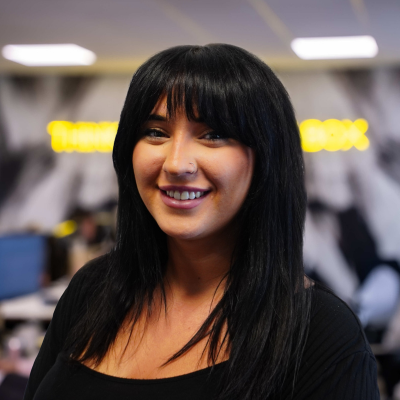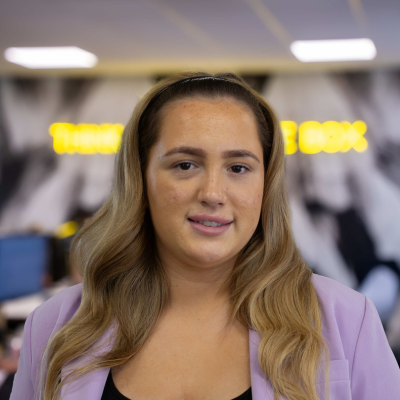Interview With a Speech And Language Therapist
03 Apr, 20241-2 minutes
In this blog, you will learn:
- The challenges faced by a Speech and Language Therapist.
- Key qualities that make a successful Speech and Language Therapist.
- The career path of a Speech and Language Therapist.
- Where the latest Speech and Language Therapist jobs are and how to apply for them.
According to the Royal College of Speech and Language Therapists, there are simply not enough Speech and Language Therapists to meet current and future demands, in both the NHS and the private sector.
In fact, a recent survey report by the RCSLT in April 2023 found that 96% of children’s speech and language therapy services and 90% of adult services say recruitment is much more challenging than at any time in the last three years.
The healthcare sector is trying to encourage more people to begin their career in speech and language therapy as they play a crucial role in providing transformative treatment and support to those who face difficulties with eating, drinking, swallowing and communication.
We’ve been catching up with Speech and Language Therapist, Chelsie Gibson, to learn more about her day to day responsibilities and to discover what challenges she commonly faces in her role and how she overcomes these hurdles.
Chelsie, tell us about your career path so far
I trained as a Speech and Language Therapist from 2014 to 2018 in Manchester after having my little boy. Prior to this I had completed an English Language & Literacy degree straight from school and worked various jobs including as a Teaching Assistant, working in hospitality, working for a solicitors and in care.
I had thought about going into teaching, but after shadowing a Speech and Language Therapist in a SEN school I decided speech and language therapy was the path for me.
After completing my Speech and Language Therapist degree, I spent 5 years in an independent company working closely with Sensory Integration Practitioner Occupational Therapists in a variety of settings. These settings included mainstream primary schools, SEMH primary and secondary schools, Pupil Referral Units, private and local authority SEN schools and care settings.
In September 2023, I started as an Associate with another independent company, and I currently work in an SEMH primary, an SEMH secondary, a Pupil Referral Unit and a SEN school.
What inspired you to become a Speech and Language Therapist?
My youngest brother was born when I was 15 with a bilateral cleft lip and palate. As we lived a few hours from the specialist at Alder Hey Children’s Hospital, we took on a bulk of his speech and language therapy input ourselves, under the guidance of the specialist. This was what initially got me interested in speech and language therapy.
After my son was born around 10 years later, I decided I wanted to go into a professional career and shadowed a Speech and Language Therapist in a SEN school local to me. This really made me excited to think I could do something that could have such an impact on someone's life.
What does a typical day in your role as a Speech and Language Therapist look like for you?
No two days are the same but generally I will go into whichever school I’m in and touch base with the main contact (usually a SENCO) and see what the priorities are. Each service is bespoke to how the school wants to use my time.
In some schools this will mean assessments and report writing take up the bulk of my time, in others I will be in classrooms supporting, modelling and giving hands on advice. However in other schools, I will be pulling out pupils for a combination of 1:1 and group interventions, assessments or reviews and feeding back to staff with speech and language therapy programmes for them to deliver.
There will sometimes be days where I’m in meetings for EHCP reviews, family support meetings and strategy meetings with senior leadership teams. In the SEN school, we work closely with the NHS Speech and Language Therapist to ensure a joined up approach to delivering the service, so I have a day each term where we catch up on our shared caseload.
I always advocate for ‘upskilling’ staff, so will regularly deliver bespoke twilight training sessions and deliver Elklan training where required. Then there is at least an hour of writing up continuations and replying to emails daily!
What specific areas of Speech and Language Therapy do you find particularly rewarding?
So many, including seeing the impact that your advice can have on the child, their family, the adults supporting them and the environment they are in.
I love seeing something click for a child. Whether that’s getting the speech sound out correctly, or independently using AAC (Augmentative and Alternative Communication) for the first time, knowing that they have been heard and understood, there is just something so amazing and joyful about it.
I also enjoy empowering the adults who support them, so they are confident in their approaches and in what they're doing.
In your opinion, what are the key qualities that make a successful Speech and Language Therapist?
Kindness, compassion, being open-minded and willing to change your approaches and develop your knowledge base. Also having patience, being approachable to all people and not taking yourself too seriously.
I would say being organised as well - but I am the least organised person so maybe having good systems in place to be organised! Being able to respond to change and reordering priorities regularly helps too.
What challenges do you commonly face in your role, and how do you overcome them?
- Time - There's never enough time. I try to make sure I have set out clear expectations with schools so they know what they can expect in the time they have with me and I am always transparent when things take longer than expected or other things become a priority. I have also developed different report templates to try and reduce the amount of time spent on report writing.
- Adults in settings not fully understanding my role or thinking I am there to judge them and being a bit defensive. I try to speak to them away from the pupils to just give them more of an understanding of why I am there and that I am there to support, empower and share advice, not to judge them.
- Funding - I have moved from a private SEN setting where the funding for AAC devices was freely available, to a local authority SEN setting where it’s not, so I’m currently getting my head around funding, how it works and how and when to refer to the ACE centre etc.
- Advice and strategies not being used to support pupils - First and foremost upskilling and training staff so they feel confident, secondly getting in and modelling myself where appropriate.
What advice would you give to someone considering a career in Speech and Language Therapy?
Go in with an open mind and try out all areas of speech and language therapy. When I started out, I wanted to specialise in cleft lip/palate and speech sounds; however, I've ended up specialising in SEMH and autism. It can be tough going on the course but it is definitely worth it.
Do you have any specific goals or aspirations for your career as a Speech and Language Therapist?
I want to train to be a Sensory Integration Practitioner and I plan to train in autism diagnostics. I will continue to develop my specialist areas, and eventually ensure that therapists who work with me all work in a trauma-informed, neurodiversity affirming way. There is already a huge shift in the approaches we are using as a profession, but I want it to be the standard that anyone working with neurodiverse client groups have a really good understanding and are working in this way.
I would also like to be part of something that works to change the legislation so that AAC falls under disability support such as hearing and mobility aids, so more people who need it have access to it!
Speech and Language Therapist jobs
Looking for your next interim role as a Speech and Language Therapist? Healthcare recruitment specialist, Natalie Boaler is on hand to help! Either upload your CV or take a look at our jobs page.
Recruit Speech and Language Therapists
Looking to recruit Speech and Language Therapists? With years of experience in healthcare recruitment, we understand the challenges you may face, the nuances in recruitment to look out for and most importantly where to find outstanding individuals to ensure staff shortages don’t impact the highest standard of care.
We are APSCo and REC accredited to ensure you have complete confidence that all checks are completed before a candidate starts work.
To find out more about our speech and language therapy recruitment services, or to get a tailored quote for your business or NHS Trust, contact us today on 01772 954200.
Share your experience
Every individual brings a unique set of experiences, thoughts, and insights to the table. We believe in giving a voice to a community of professionals to inspire positive change and champion reform in the healthcare sector.
If you work in the healthcare sector and would like to share your own personal and professional experiences, we’d love to hear from you. Perhaps you have a different perspective, could offer a fresh angle, or want to challenge assumptions.
Simply reach out to our Head of Content, Nicole Sherwood, to discuss a collaboration which makes your voice count.
Who is Spencer Clarke Group?
We are an energetic recruitment agency with a passion for culture, innovation and positivity. From the way we conduct business, to our core values, we are driven by our commitment to the evolution and progression of the recruitment industry.
We are determined to transform the recruitment experience and have a positive and meaningful impact on everyone we encounter.
We operate in two sectors:
In eleven specialisms:
Healthcare, Social Care & Nursing
Corporate Functions & Business Support





